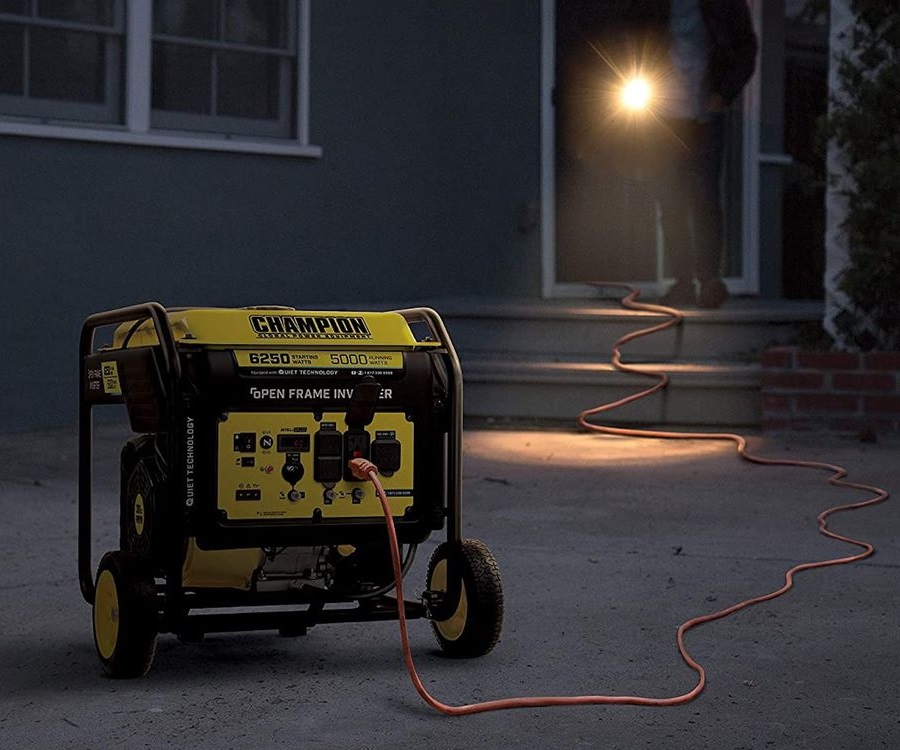Electricity Generators - Diesel Generator Or Gasoline Generator?

Electricity Generators - Diesel Generator Or Gasoline Generator?
Electricity generators are becoming increasingly needed as our habits and work are very strongly related to electricity demand. An electricity generator is precisely that device that is a substitute supplier of electricity in the event of a power outage in the home, farm, construction, industry, building, or other industries. Generators are also often used where there is no fixed source of electricity, such as in remote construction. Therefore, an electricity generator in these spheres is a very practical device to protect against power outages.
By having a generator, you will already be guaranteed to always have an uninterruptible power supply. However, it is very important to choose the right one that meets the needs of the farm.
How to choose the right electricity generator?
In order to choose the most suitable electricity generator, you first need to plan exactly where it will be used and what electricity supply needs are needed. In other words, what will be connected to the power generator. Therefore, the most important criterion when choosing a generator is its power, which is measured in watts (W) or kilowatts (kW). So it all depends on where exactly it will be used. If you need an electricity generator because your home often loses electricity, you need to calculate which appliances in your home are most needed to cover the power outage. If you need an electric generator at a remote construction site, also evaluate the power of the power tools you will be using.
Another important criterion when choosing a generator is the number of phases in the generator, so all generators are divided into single-phase and three-phase. Single-phase power generators are more commonly used in households because their power is much lower. Three-phase generators are much more powerful and also more efficient, so generators of this type are more commonly used in commercial and industrial facilities to meet the need for electricity supply. It is worth mentioning that three-phase electric generators have a longer service life during operating hours, they have a higher voltage and much less vibration.
Noise level is another criterion to consider when choosing it because power generators are really noisy. If this is one of the key criteria for you, we would recommend a petrol generator, as they run quieter than diesel generators. And if this is your most important criterion for keeping the generator noisy, then you need to choose an inverter generator as they are the quietest. Inverter generators are distinguished by the fact that they maintain a constant electric current.
Depending on whether the generators will be used outdoors or indoors, they are also divided into open and closed type generators. Closed-type generators are used outdoors, such as on construction sites or on the roofs of industrial buildings. Closed-type electric generators are extremely quiet because the noise transmission is reduced due to the housing. Open-body generators can, of course, also be used outdoors, but without rain or snow, as they are not protected from the weather, so they are mostly used indoors. It is necessary to mention that precisely because they are used indoors, the room in which they are built must be extremely well ventilated.
If your household or commercial facility frequently loses power, be sure to turn on the auto-start and shut-off feature. Only stationary generators usually have this function. It is needed so that if there is a power failure in your facility, you do not have to worry about anything, because the electricity generator is started automatically. There is a similar function for switching off - when the power supply is restored to the normal supply level, the electricity generator automatically switches off.
Another, less important, but for convenience, start-up. Starting can be manual or electric. Manual start - the electric generator is started by turning the engine with the help of a string. Electric start - the generator starts at the touch of a button.
Gasoline electric generators
These are the most popular power generators used for small and intermittent power supply, mostly in homes, farms and private construction. The main uniqueness of this type of generator is its mobility, as they are lightweight. If the gasoline generator is heavier, its body is the principle of a trolley - with wheels and a handle. Other advantages are compactness and low footprint. Gasoline electric generators are cheaper than diesel generators.
A gasoline generator is much simpler than a diesel generator. A gasoline electric generator consists of a gasoline engine, a generator - the purpose of which is to convert the extracted mechanical energy of the engine into electricity, a frame - which can be both on wheels and simple. Generators that use gasoline to extract energy are reliable helpers in the household, construction, or small farms.
Diesel electric generators
Simplicity, low maintenance, lower costs in the long run - these are the uniqueness that accompanies diesel generators. Why? These generators do not contain carburetor and spark plugs and other mechanical parts for gasoline generators. All it takes for a diesel generator to last a long time is to simply maintain and check the oil on a regular basis. The diesel generator also uses less fuel, so lower maintenance costs will recoup the initial investment. This type of generator technology is designed to withstand variable jumps and their use is continuous. Unlike gasoline generators, which are used intermittently.
Diesel generators are noisier, so if you decide to choose a diesel generator, we suggest you choose from models that have noise-reducing housings and, if you are buying a stationary diesel generator, think carefully about where to install it.
All diesel generators we sell come in several types: 1. Open body; 2. Small generators with metal housing; 3. Closed type (installed outdoors); 4. Container. If your work is not continuous and you only need a generator in volatile cases with low power, we recommend choosing the first and second options. However, if you need a diesel generator for a commercial building, the third and fourth types of generator would meet your needs.
If you need more information and assistance in choosing an electric generator, please contact us and we will definitely help - our contacts.
